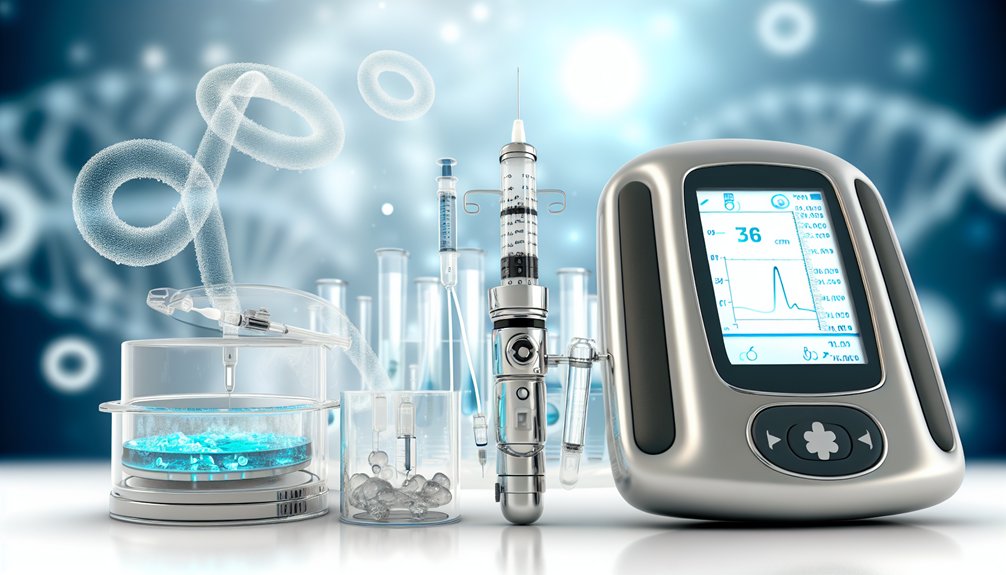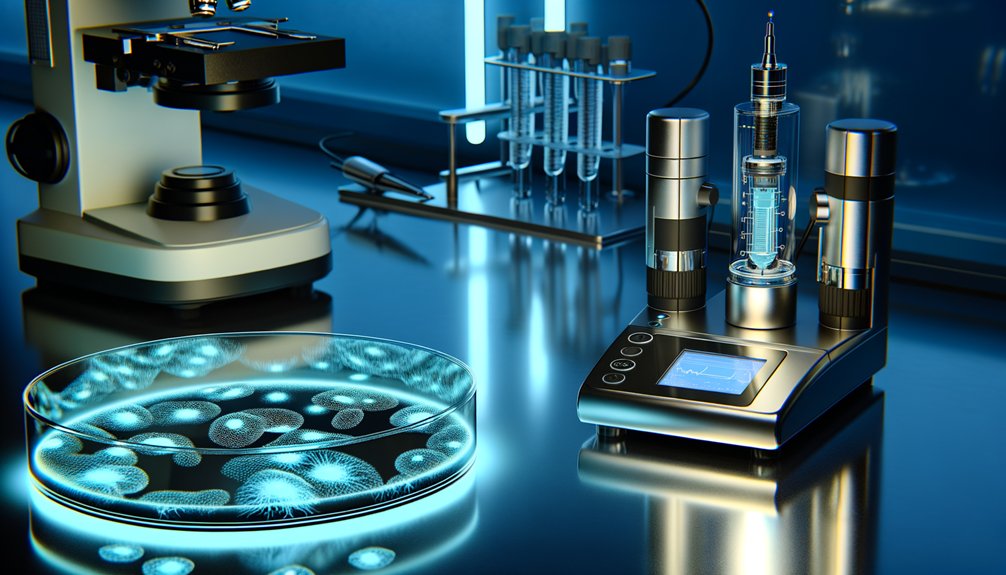Recent advancements in Type 1 Diabetes treatment bring a wave of optimism. Innovative therapies, like stem cell-derived islet cell therapy and immunotherapy, offer hope for reduced insulin dependency. Exciting trials show promise, with patients experiencing better glycemic control and even insulin independence. Techniques like gene editing using CRISPR are revolutionizing how insulin-producing cells are treated, minimizing rejection risks. These breakthroughs not only inspire hope but also remind us that a brighter future for T1D management is on the horizon. There’s so much more to explore about these remarkable developments.

As researchers dive deeper into the world of Type 1 diabetes (T1D) treatment, hope is blossoming like spring flowers after a long winter. The latest advances in stem cell-derived therapies are shining bright, promising a future where insulin injections may become a thing of the past.
The FORWARD study marked a significant milestone, demonstrating that allogeneic stem cell-derived islet cell therapy can dramatically cut down the need for injectable insulin in T1D patients. This progress sparks joy, as it suggests the potential to regenerate insulin-producing beta cells, offering a glimmer of hope for those longing for independence from daily shots. Vertex Pharmaceuticals’ VX-880 therapy trial has shown encouraging results in reducing insulin dependency among participants.
The FORWARD study heralds a new era, promising reduced insulin dependence and renewed hope for T1D patients.
In laboratories around the globe, scientists are harnessing the power of Mesenchymal Stem Cells (MSCs) to protect and support the regeneration of beta cells. Clinical trials have shown improved glycemic control, painting a picture of better days ahead. Additionally, researchers are exploring immunotherapy approaches that aim to modulate the immune response and protect insulin-producing cells.
Even more exciting are the advancements with induced pluripotent stem cells (iPSCs), which can be derived from patients themselves, creating islet-like cells that the body is less likely to reject. In a groundbreaking trial in China, participants achieved insulin independence for over a year, an achievement that brings smiles to faces and tears of relief to many. Moreover, Sana Biotechnology’s gene-editing technique shows that transplanted islet cells produced insulin in one individual without the need for immunosuppression.
Gene-editing techniques, particularly CRISPR, are also paving new paths. These technologies enable scientists to modify islet cells so they can produce insulin without triggering an immune response. This means the dreaded immunosuppressive drugs may not be needed, a significant leap in ensuring patient safety and comfort.
Early-phase trials are already showing promise, with participants experiencing remarkable results, including insulin production without the burden of immune suppression.
As these clinical trials continue to unfold, the hope for a future free from the daily challenges of T1D grows stronger. With each breakthrough, the dream of true insulin independence feels closer, filling hearts with optimism and determination.
The journey may be long, but the flowering of innovation in T1D treatment is undeniably bright.
